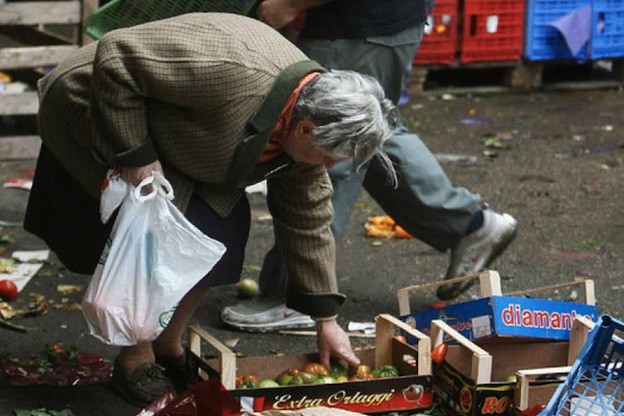Brussels – Few college graduates, too many school dropouts, a population rate at risk of “critical” poverty or social exclusion, and government measures that do not help; Italy is struggling, and the country-specific analysis on social convergence produced by the European Commission only certifies, black on white, the limitations of the eurozone’s third-largest economy, characterized by so many poor, precarious, and uneducated citizens. From education to the labor market, via the never-resolved southern question, Italy seems to have done little or nothing to correct the course. On the contrary, what emerges is a situation that is deteriorating due to policy choices on which the EU turns the spotlight and calls for action.
-
- Too many atypical contracts and wage stagnation negatively affecting income
The Commission first notes that “since the 1990s, the Italian labor market has experienced a sharp increase in atypical contracts,” with a decrease in the number of weeks worked per year. Despite limited improvements in 2023, “the share of fixed-term contracts remains among the highest in the EU.” It is not new that Italy is the home of the people of the self-employed, but these customs and practices come at a social cost. “The high incidence of non-standard forms of work (including seasonal work) has led to a decline in the number of weeks worked per year and contributes to high inequality and volatility of annual earnings,” the analysis produced in Brussels shows.
In addition, this labor market “also has negative consequences on the accumulation of firm-specific human capital as well as on the coverage of employed people by social protection and its financing.” According to the study, atypical contracts “generate de-facto inequalities” in terms of social protection.
Then there is the salary issue. “Between 2013 and 2022, the growth in nominal wages per employed person was 12%, half the EU-level growth (23%).” So, while purchasing power in the EU increased by 2.5 percent, it has shrunk by 2 percent in Italy. Adding up these factors, the Commission does not doubt that “wage stagnation, low work intensity and employment rates, along with a high share of single-earner families, induce significant in-work poverty risks.” It is what the data shows: in 2022, Italy’s at-risk-of-poverty rate for people who are in work “is among the highest in the EU (11.5% vs 8.5%).”
- Minimum income scheme can help; the Meloni reform increases poverty
Faced with a situation that was not new and, in any case, rampant the first Conte government tried to rush to reparations by introducing a minimum income scheme (Reddito di Cittadinanza). The EU executive had mixed feelings about the measure considered at the time: on the one hand, it implicated an increase in public spending, but it also had potential medium- to long-term returns in terms of increased consumption. The advent of the Meloni government produced a reform that reduces access to support, pejoratively, however. “the Assegno di Inclusione (Inclusion Allowance) is expected to induce higher incidence of absolute and child poverty (by 0.8 percentage points and 0.5 percentage points, respectively) relative to the previous scheme.” A failing grade for the current majority.
-
- Few college graduates, too many school dropouts
The Commission notes two additional critical elements. On the one hand, the level of tertiary education (degrees) is among the lowest in the EU (29.2 percent compared to the EU average of 42 percent), and on the other, early school leaving “remains a significant problem.” Few young people with relevant knowledge and skills and many young people who are not doing anything, neither in employment nor in education and training (Neet), “with negative effects on their career paths and future earning capacity” and negative repercussions on the competitiveness of the country system.
-
- Southern Italy, still a long way to go
All this is especially true in the South. It is where the findings of the European Commission are most evident. “Of the 10 regions in the EU with the highest Neet rates, four are in Southern Italy (Sicily, Campania, Calabria, and Puglia).” In addition, three southern Italian regions (Campania, Sicily, and Calabria) are among the 10 EU regions with the highest rates of monetary poverty. As a result, “children and people living in the South are at greater risk of poverty or social exclusion.”
English version by the Translation Service of Withub




